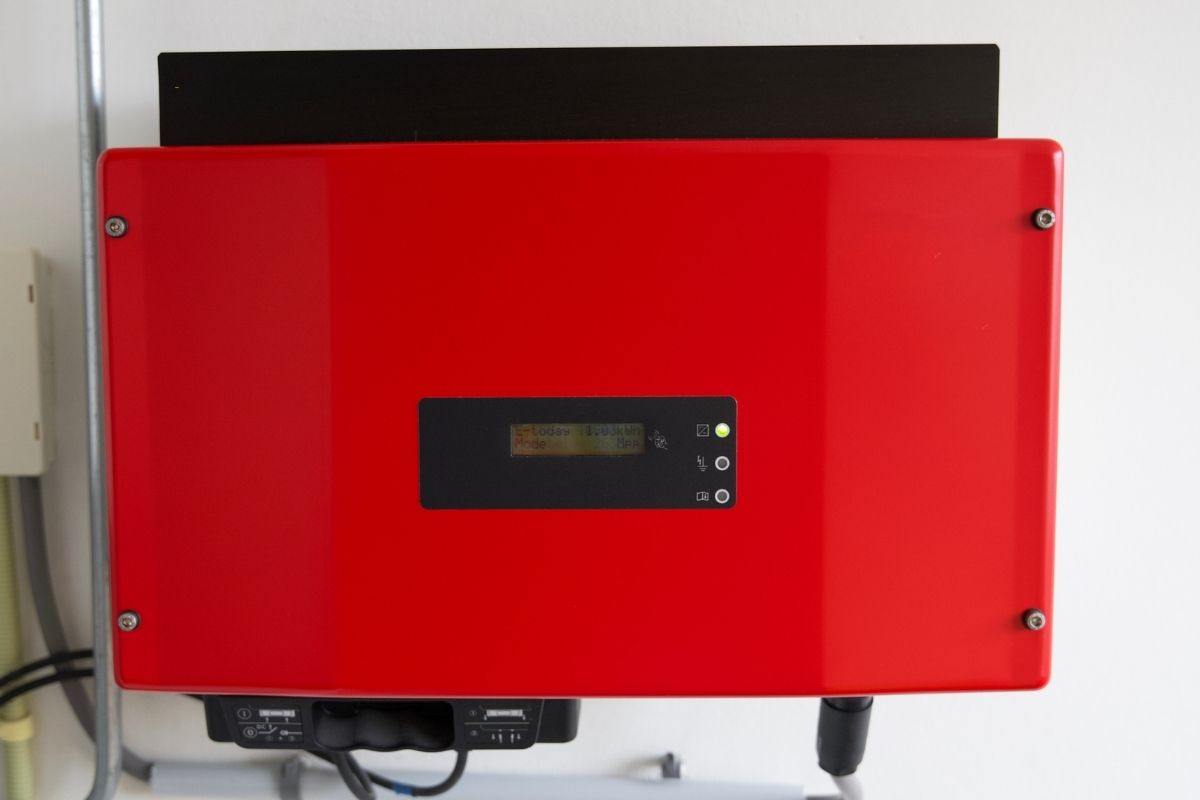Discover How To Use The Power of Authority Marketing To Make You Money While You Adventure!
No Experience, Existing Product Or Technical Skills Are Required
DO YOU BELIEVE ADVENTURES ARE WORTH CHASING?
We're an affiliate.
We hope you love the products/services we recommend on Just Van Life! So you know, there is the possibility we will collect a commission should you make a purchase via any of our links. This will in no way affect the purchase price. Thank you for your support, we really appreciate it!
The term “power inverter” refers to a device that converts direct current (DC) into alternating current (AC). This type of device is commonly found in homes and businesses where electricity from the grid is converted into AC power for appliances such as air conditioners, refrigerators, computers, etc.
A power inverter is a device that converts DC into AC. Inverters are also known as power converters or power adapters. They are usually connected between the mains supply and the appliance.
Power inverters are used in many applications, including:
Inverters are available in two main types:
The first type is an electronic switch-mode converter, which uses semiconductor switches to convert the input voltage to the desired output voltage.
These devices have high efficiency and low harmonic distortion, but they require large amounts of energy storage, typically in the form of capacitors or batteries.
The second type is a linear regulator, which consists of a transistor amplifier circuit with feedback control. It has lower efficiency than switch mode converters, but it does not produce harmonics.
Some inverters can operate on either 120 V or 240 V supplies. Some inverters are designed to be compatible with both types of supply voltages.
Other features include:
- Input and output connectors
- Optional remote control
- Built-in surge protection
- Overload protection
- Short circuit protection
- Ground fault detection
- Voltage monitoring
- Current sensing
- Temperature compensation
Why Do I Need A Power Inverter?
There are several reasons why you may need a power inverter.
For example, if your home or office has a split system air conditioning unit, then you will need a separate power inverter to run this unit.
If you want to use a portable generator instead of running your air conditioner directly from the mains, then you will need an inverter to connect the generator to the mains.
You may need an inverter if you want to use a battery bank to provide backup power when your regular power source fails.
You may also need an inverter if your house or business has a solar panel array. If you wish to use the power produced by these panels to run your air conditioner, then you will need to install a power inverter.
How To Choose A Power Inverter
Choosing a power inverter is easy once you know what you require. There are three main factors to consider when choosing a power inverter:
- What kind of power do you require?
- How much power do you require? And how much capacity do you need?
- Where do you plan to place the power inverter?
Let’s take a look at each factor in turn.

1. What Kind Of Power Do You Require?
This is probably the most important question to ask yourself before purchasing a power inverter.
Most people assume that all power inverters are capable of converting any amount of power from one voltage to another. However, this is not always true.
For example, a typical household might only require a small inverter for powering a few lights and appliances. On the other hand, a larger commercial building might require a very powerful inverter to power its entire lighting and heating/cooling systems.
In addition, some inverters are designed specifically for outdoor applications. They are usually rated as being able to withstand extreme weather conditions such as heat, cold, rain, and snow.
Most power inverters come equipped with a number of different outputs. This allows them to handle a wide range of loads. For instance, many inverters are capable of providing up to 100 watts per channel. This means that they can deliver enough electricity to light 100 bulbs, or even more.
However, there are two types of inverter available. These are known as AC/DC and DC/AC. An AC/DC inverter converts alternating current (AC) into direct current (DC). A DC/AC inverter does the opposite. It takes DC power and converts it into AC.
2. How Much Power Do You Require? And How Much Capacity Do You Need?
The second part of our guide on choosing a power inverter concerns how much power you require. The amount of power required depends on where you intend to place the power inverters.
A power inverter needs to be placed somewhere safe. This could be inside a cabinet, under a desk, behind a radiator or next to a window.A good rule of thumb is to ensure that the inverter is located away from any flammable materials. Also, make sure that it is out of reach of children and pets.
If you have no intention of placing the inverter near windows, then you should pick a unit that provides sufficient output to meet your requirements.
For example, if you need to supply 10 amps of power, then you would want a power inverter that provides between 20-30 amps.
If you are planning to install several power inverters, then you should choose a unit that offers plenty of capacity. For example, if one inverter fails, then you don’t want to find yourself without any power.
3. Where Do You Plan To Place The Power Inverter?
The final consideration when deciding on a power inverter is where you plan to locate them. Some people prefer to keep their power inverters hidden away. Others like to display them proudly in their home.
If you decide to hide your power inverters, then make sure that they are well protected. If possible, try to conceal them behind furniture or in cabinets.
Also, make sure that they are placed far away from electrical sockets. This will help prevent accidental damage to them.
Conclusion
Power inverters can provide an essential service to homeowners who live in areas where there is no mains electricity. They allow you to run all sorts of devices using alternative energy sources.
As long as you use them correctly, then they can save you money over time. However, you do need to know what you’re doing before you buy one.
This article has provided you with everything you need to know about choosing a power inverter.
Hopefully, this information will help you make the right choice.
Discover How To Use The Power of Authority Marketing To Make You Money While You Adventure!
No Experience, Existing Product Or Technical Skills Are Required
DO YOU BELIEVE ADVENTURES ARE WORTH CHASING?
